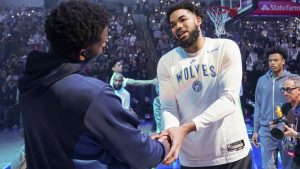
Tesla Settles Fatal Autopilot Crash Case of Apple Engineer
Tesla has reached a settlement in a highly publicized lawsuit stemming from a fatal car crash involving its Autopilot technology. The incident, which occurred in 2018 near San Francisco, resulted in the death of a 38-year-old Apple engineer, Walter Huang, when his Tesla Model X, operating on Autopilot, veered off a highway. The terms of the settlement were not disclosed, but it comes amid a series of legal challenges facing Tesla over accidents linked to its driver-assistance system.
The family of the deceased engineer had alleged that Autopilot was responsible for steering the vehicle into a highway barrier. However, Tesla countered by claiming that Huang had misused the Autopilot system by reportedly playing a video game just before the crash. The settlement, reached on the eve of the trial, prevents further public scrutiny of the incident and avoids potential reputational damage for the automaker.
This case is one of many involving Tesla’s Autopilot technology, with hundreds of accidents in the U.S. reportedly involving the system. The National Highway Traffic Safety Administration has investigated numerous crashes linked to Autopilot, some of which resulted in fatalities. Despite these challenges, Tesla CEO Elon Musk continues to champion self-driving technology as a cornerstone of the company’s future success.
My commitment:
– We will never seek victory in a just case against us, even if we will probably win.
– We will never surrender/settle an unjust case against us, even if we will probably lose.
— Elon Musk (@elonmusk) May 20, 2022
The settlement signals a shift in Tesla’s legal strategy, indicating a willingness to resolve high-profile cases rather than engaging in protracted legal battles. However, it also highlights the ongoing debate surrounding the safety and efficacy of autonomous driving systems. As Tesla strives to bring fully autonomous vehicles to market, it faces mounting pressure to address concerns about the reliability and potential risks associated with its technology.
While Tesla maintains that Autopilot enhances driver safety by assisting with tasks such as speed adjustment and lane-keeping, critics argue that the system can lead to complacency and inattentiveness behind the wheel. The company’s promotional efforts for its Full Self-Driving option have drawn scrutiny, particularly regarding its claims of autonomy and the level of driver supervision required.
In the face of these challenges, Tesla must navigate a delicate balance between innovation and regulatory compliance to maintain its position as a leader in the automotive industry. As the company continues to develop and refine its autonomous driving capabilities, it faces increasing scrutiny from regulators, consumers, and industry experts alike. The outcome of legal battles and public perception will undoubtedly shape the future of Tesla’s autonomous driving ambitions.

